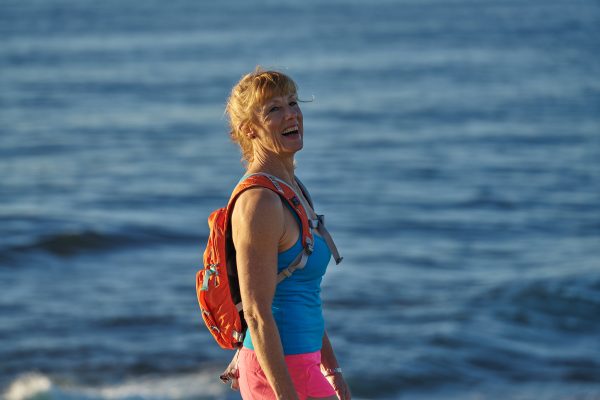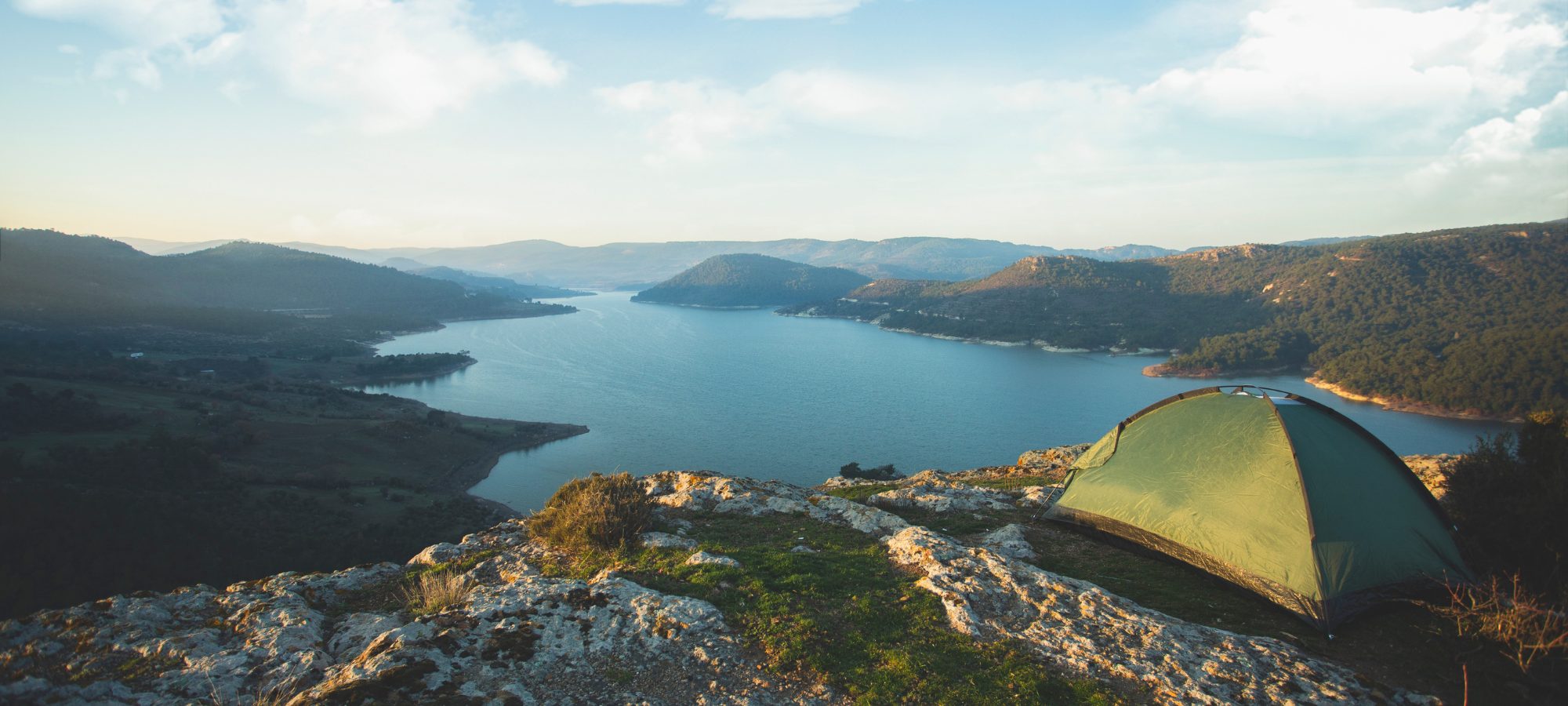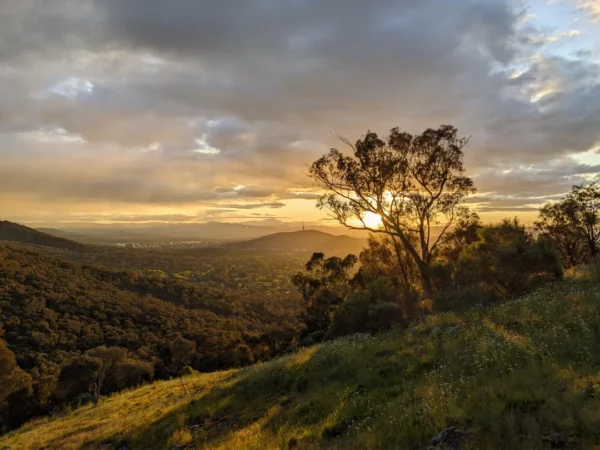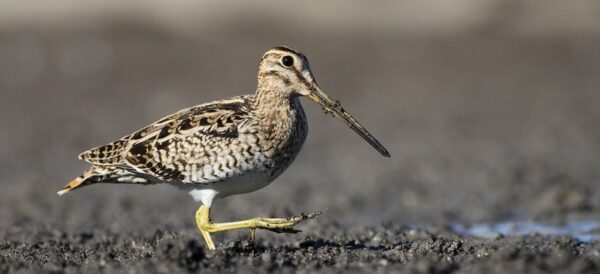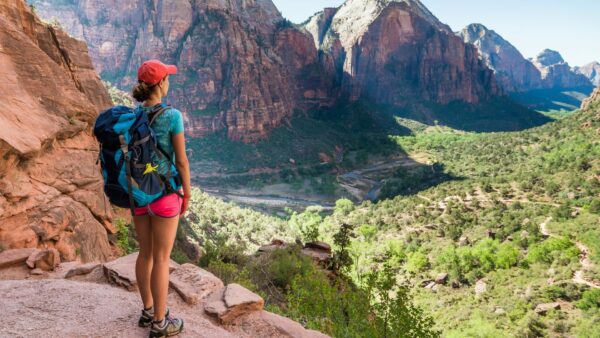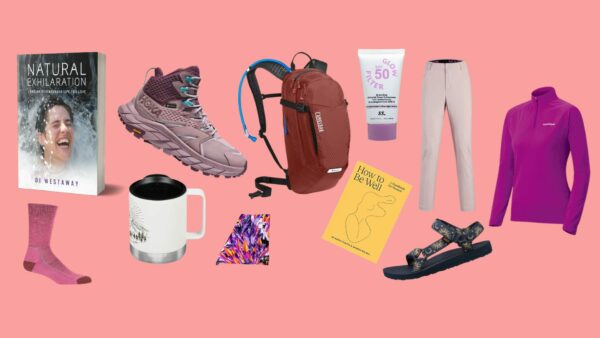Have you ever wondered what you’d do if your tent filled up with water in the middle of the night?
I don’t need to wonder.
I’ve lived through a couple of leaky-tent adventures. The most recent happened one night after midnight at The Basin, in Kuringai National Park, when torrential rain found its way into my previously trusty old tent.
By 2am it was a swamp. I had to perch precariously on top of my backpack in the corner of the tent, umbrella erect, to escape my flooded sleeping bag.
The worst part was I was trying hard to impress a new date with my adventure skills and couldn’t face him coming to my rescue. “I’m all good!” I called out through the downpour. I wasn’t all good.
By morning I was feeling very grateful for years of trek training, rock scrambling and stretching which gave me the resilience and ability to endure prolonged discomfort and bend my body into a pretzel shape.
While you don’t always end up with a swampy tent, camping adventures have a way of challenging us. Whether it’s pesky insects, no heating, bush toilets, lack of water and/or no electricity, we have to use our bodies in different ways than we do in the comfort of our homes. But the magnificent views, pure air, exotic birds, abundant wildlife, twinkling stars, breathtaking silence and access to natural wonderlands make it all worthwhile.
To ensure camping is more pleasure than pain, most of us require more than just a great gear list and stunning location. We require good balance, well-developed core muscles, powerful quads, supple joints and strong resilience, even if everything goes to plan.
For most of us, these skills require practice. So here are my top tips on how to get them:
Balance
Unless you want to do a nudie run from the shower to the tent, you need to be able to get dressed while standing. You also need to perform other feats of balance, such as squatting to poo, pulling undies up, tying shoelaces and bathing on top of rocks, mud, dirt, prickles, ants nests and/or shrubbery. This means you need to balance on one foot for several minutes at a time while moving the other leg about.
Here’s some ways to improve your balance:
- Practice standing one leg without holding onto anything every time you put your stockings, socks and shoes on at home.
- Take yourself out into nature once a week and find rocky surfaces that require you to leap, balance and scramble over uneven obstacles.
Core strength
Every time you get in and out of your tent, up and down from your sleeping mat, or load up your pack, gear, and hiking equipment, you need your core. A strong core protects your back while you move, which means you’ll be a happy camper.
Here’s some ways to build your core strength:
- Practice your plank, including one armed side planks, for x 1 minute every second day.
- Switch on or activate your core every time you remember, especially when carrying your pack, cooking, and cleaning.
Powerful quads
If you’ve ever fallen down into a puddle of your own wee while doing a bush pee, you’ll know why you need strong quadriceps. Strong legs, especially your quads, are also important for moving over uneven surfaces, carrying water, fire building, camp cooking, wood collecting, and packing and unpacking the car.
Here’s some ways to build your quad strength:
- Load up your backpack with 5 – 10kg and go up and down 10 sets of stairs every day.
- Practice squats every time you’re watching TV or brushing your teeth.
- Do pilates or strength training
Supple joints
Sometimes, when you’re camping, you need to move quickly… perhaps to escape an ants nest or jump out of the way of a burning log. To do this safety and prevent injury, you need to have flexible joints and elastic muscles.
Here’s some ways to improve your flexibility and mobility:
- Practice stretching all major muscle groups for ten minutes every day.
- Practice yoga online or in a class twice a week.
- Do the Five Tibetans every day before bed.
Resilience
Sometimes when you’re in the bush, emotions can run a little high, and before you know it you’re having a low-key tantrum because you dropped your pack of jelly beans into the mud.
This is a time when you need resilience. Resilience is like a muscle and if you practice it regularly it will be there when you need it most.
To build your resilience, I recommend you:
- Go hiking in torrential rain.
- Load up your backpack with 5 – 10kg and go up and down 10 sets of stairs every day.
- Practice hot yoga.
- Try meditation.
If you’re well prepared physically and emotionally, you can ensure camping is a joy rather than a struggle. At best, it’s a beautiful opportunity to immerse yourself in nature, frolic in the moonlight, bathe in the warm glow of a camp-fire, plunge into pristine streams, cook delicious food with friends, and wake to the sounds of kookaburra’s laughing and wallaby’s bouncing about.
Don’t miss out on that cos of a little discomfort!


